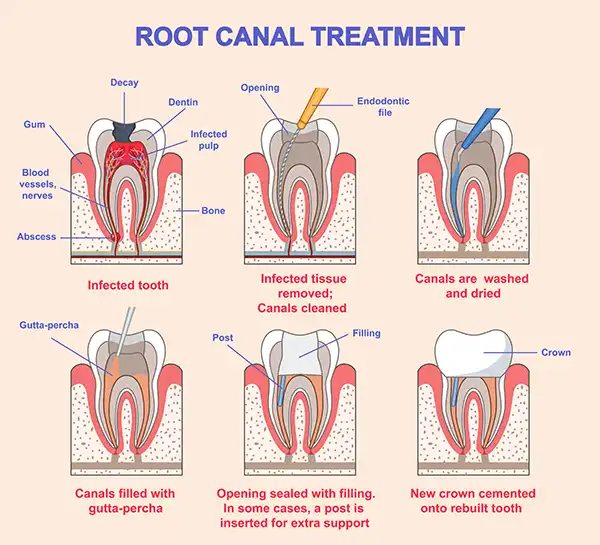Periodontal Care Folsom, CA Gum disease is a problem that affects many people. Gum disease is a problem that affects many people. Some of the most common symptoms are bleeding gums, bad breath, and teeth that may loosen or fall out. Gum disease can also lead to more serious health problems such as heart infections, stroke, and Alzheimer's disease. There are treatments available for gum disease, but prevention is always better than cure! At Highridge Dental Care we know gum disease is a huge threat and we are here to help our patients have healthy teeth and gums. What Is Gum Disease?Gum disease is a condition that affects the gums, teeth, and bone. The gum tissue can begin to pull away from your teeth because of plaque or tartar buildup on the surface of your teeth. Over time this build-up can harden into calculus which causes inflammation in the tissues surrounding your tooth roots and results in infection. Gum disease also leaves you susceptible to other infections like pneumonia and meningitis. The bacteria found in dental plaque produce toxins such as tetanus toxin, streptococcus mutans (which may cause heart problems), staphylococci which might lead to inflammatory bowel diseases including Crohn's disease or ulcerative colitis, enterotoxin B-producing E.coli strains are linked with the development of reactive arthritis, and certain strains of streptococci may lead to pneumonia. What Are The Signs Of Gum Disease?The signs of gum disease include bleeding gums, swollen or tender gums, receding gums, and sensitive teeth. Gum recession is the most common sign of gum disease along with a white coating on your tongue called tartar. There are some other symptoms that can also indicate an oral health problem like difficulty chewing food because it's too hard; pain when biting down; feeling overcrowded in your mouth (because there's less room for your teeth), and changes to tooth shape due to bone loss. Causes Of Gum DiseaseThere are a number of factors that may contribute to gum disease. The most common cause appears to be bacteria in the mouth, and this often comes from food particles left on the teeth after eating or drinking. This can produce plaque, which becomes tartar once hardened by saliva proteins. Tartar builds up between your gums and teeth until over time it adheres to them both, forming an almost impenetrable coating called calculus. This buildup prevents airflow along with water-soluble nutrients from reaching the surface of your tooth root where blood vessels provide oxygen and other important chemicals for cell regeneration. Treatment For Gum DiseaseTreatment for gum disease can be as simple as brushing and flossing your teeth regularly as well as scheduling cleanings every 6 months. Root planing and scaling are common gum disease treatments that we offer here in our office. If you have a more serious case, then the dentist might prescribe antibiotics or other medications to reduce the bacteria in your mouth. The dentist may also pull out any inflamed tissue that is causing pain. Please contact us at (916) 983-9929. Our Folsom dentist and team will be more than happy to answer any questions that come up about gum disease or other oral health topics. |
 Phone(916) 983-9929 HoursMonday -Thursday: 8:00am - 5:00pm Friday: 8:00am - 2:00pm - By appointment |